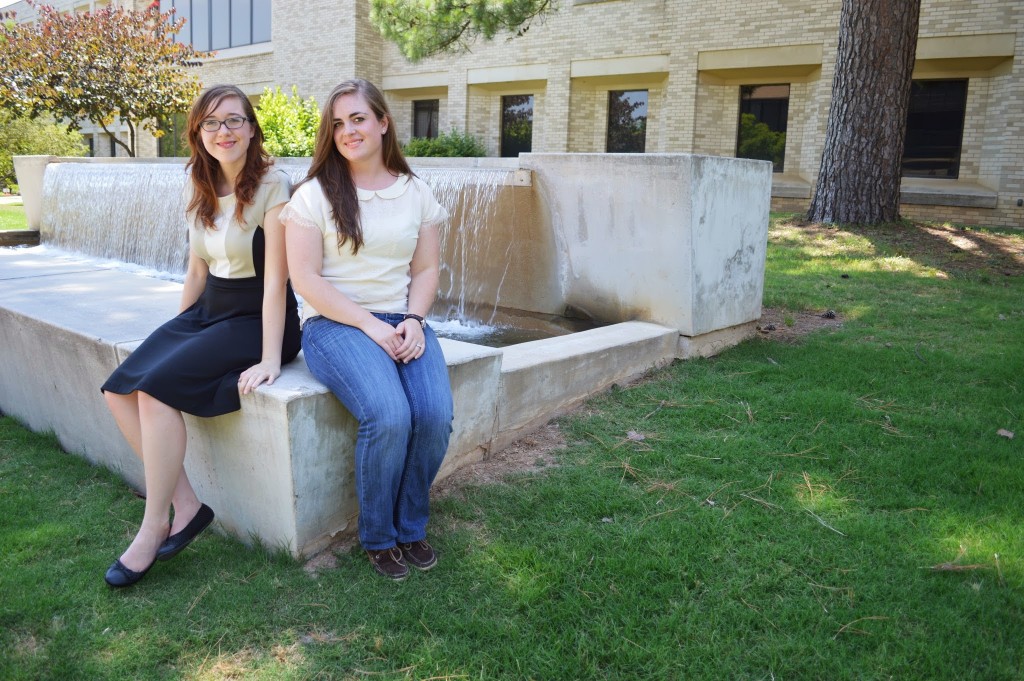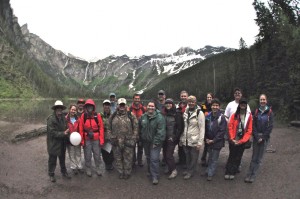Energy Corps Mallory Nelson with the University of Arkansas Office for Sustainability recently spoke with other EC members and Site Supervisors working in higher education. Here’s what she learned:
What is Energy Corps?
“The Energy Corps was created to address unmet community energy needs by promoting sustainable energy consumption and education, fostering community sustainability and helping to mitigate the effects of global climate change.”
 Energy Corps host sites are located in five different states. Of the 21 host sites, 5 positions are located on a college campus. These positions play an integral role at Universities and surrounding communities by facilitating education and community outreach.
Energy Corps host sites are located in five different states. Of the 21 host sites, 5 positions are located on a college campus. These positions play an integral role at Universities and surrounding communities by facilitating education and community outreach.
Elana Harrison sees Energy Corps as:
“A good way to give back to a community that I’ve kind of adopted. I see it as a way to give people skills and connections within local communities. It’s been interesting meeting with alumni from the program and seeing where their careers have taken them and the different ways they interpreted the skill set they gained during their service.”
Energy Corps Serves Higher Education and Beyond

Elana Harrison, the University of ArkansasApplied Sustainability Center Energy Corps member, is working on energy citizenship by policy building with cities in NWA, developing educational projects for the community, and linking college students to city projects.
Mallory Nelson, the Energy Corps member at University of Arkansas Office for Sustainability, has worked on energy and education workshops, a campus wide energy competition, waste issues, and sustainability reporting for the University.
Nicole Miller, at the Penn State University Center, is working with the University of Pittsburgh to implement the National Energy Leadership Corps curriculum, which provides free home energy assessments to homeowners.
Elizabeth Resenic and Ranya Aboras are at the Penn State University’s Center for Sustainability working on the NELC curriculum. They focus on developing the material to educate students and homeowners along with resources and training materials.
Building Capacity for Sustainability Programs

Michele Halsel, Elana’s supervisor, says, “Energy Corps members have allowed us to do things that we wouldn’t otherwise be able to accomplish.” She appreciates the specialized skills and knowledge of EC members and enjoys putting them to work on sustainability projects that can enhance their skills and resumes. Energy Corps strives to build capacity.
Kaleena Miller, the Energy Corps Program Director says:
“The Energy Corps program targets communities with geographic diversity that have energy assistance needs but lack organization at a community level. Every Energy Corps member strives to increase the capacity of their host site through the projects they work on throughout their term of service. The goal is to build a sustainable structure which allows their projects to continue well beyond their AmeriCorps term.”
Michele agrees saying Elana is “helping [the Applied Sustainability Center] create tools and things we don’t have right now. Once she leaves, someone [else] can keep it going and maintain it.”
EC Bridges Town and Gown
Energy Corps is accomplishing goals in host sites and communities with different types of service, such as education and outreach, hands on energy assistance, & community energy organizing.
Penn State: Nicole does so by working through her university host site to help the University of Pittsburgh community implement new sustainability programs. Her outreach connects Penn State and the University of Pittsburgh to put new initiatives into place. Elizabeth and Ranya continue to develop the National Energy Leadership Curriculum and materials to make sharing the program possible. Through everyone’s combined actions, Energy Corps makes a difference.
ASC: Elana builds capacity in cities by creating an awareness of the need for more personnel in energy and sustainability. The Applied Sustainability Center uses Energy Corps to research sustainability and bring it to municipalities to engage them in a conversation that has been lacking within the leadership positions of the cities. Elana says she “facilitates conversation between the cities to have discussions about sustainable policies and practices.” Cities are discovering more of their needs through education. By bridging the gap between town and gown, Energy Corps is bringing the University Sustainability Offices closer than ever to cities and communities.
Expanding the horizons of the city leaders creates more opportunities for sustainability to take root. When cities discover and implement new sustainable policies and practices, new jobs are created. This addition of policies and ideas creates a market for green jobs within these communities. It also brings power to individuals to be green/sustainable by having sustainability included in policies.
OFS: The University of Arkansas Office for Sustainability is working with the Applied Sustainability Center to connect municipalities with students who seek academic opportunities in sustainability. Students, from nearly every academic department across campus, often seek internships or capstone projects to complete their degree. Municipalities also need dedicated resources to accomplish their sustainability initiatives.
The Office for Sustainability and the Applied Sustainability Center recognize the opportunity to bridge the gap and bring these two seemingly disparate communities together. An adequate system for connecting these communities together will likely take time to fully articulate. However, successful implementation will help bolster both real life applications of sustainability as well as providing students with real life experience that doubles as an academic exercise.
EC as an Asset
Through Energy Corps, higher education institutions are able to accomplish more in areas that were once lacking structure and assistance. These accomplishments have spanned from host sites at universities to surrounding communities. Energy Corps has proven to be a valuable asset for all.
 Mallory Nelson is serving at the University of Arkansas Office for Sustainability. Born and raised in North Alabama, she graduated from Auburn University in Environmental Design with a Sustainability minor. She is an artist and musician passionate about the environment and people. Mallory recently received her LEED Green Associate accreditation.
Mallory Nelson is serving at the University of Arkansas Office for Sustainability. Born and raised in North Alabama, she graduated from Auburn University in Environmental Design with a Sustainability minor. She is an artist and musician passionate about the environment and people. Mallory recently received her LEED Green Associate accreditation.








